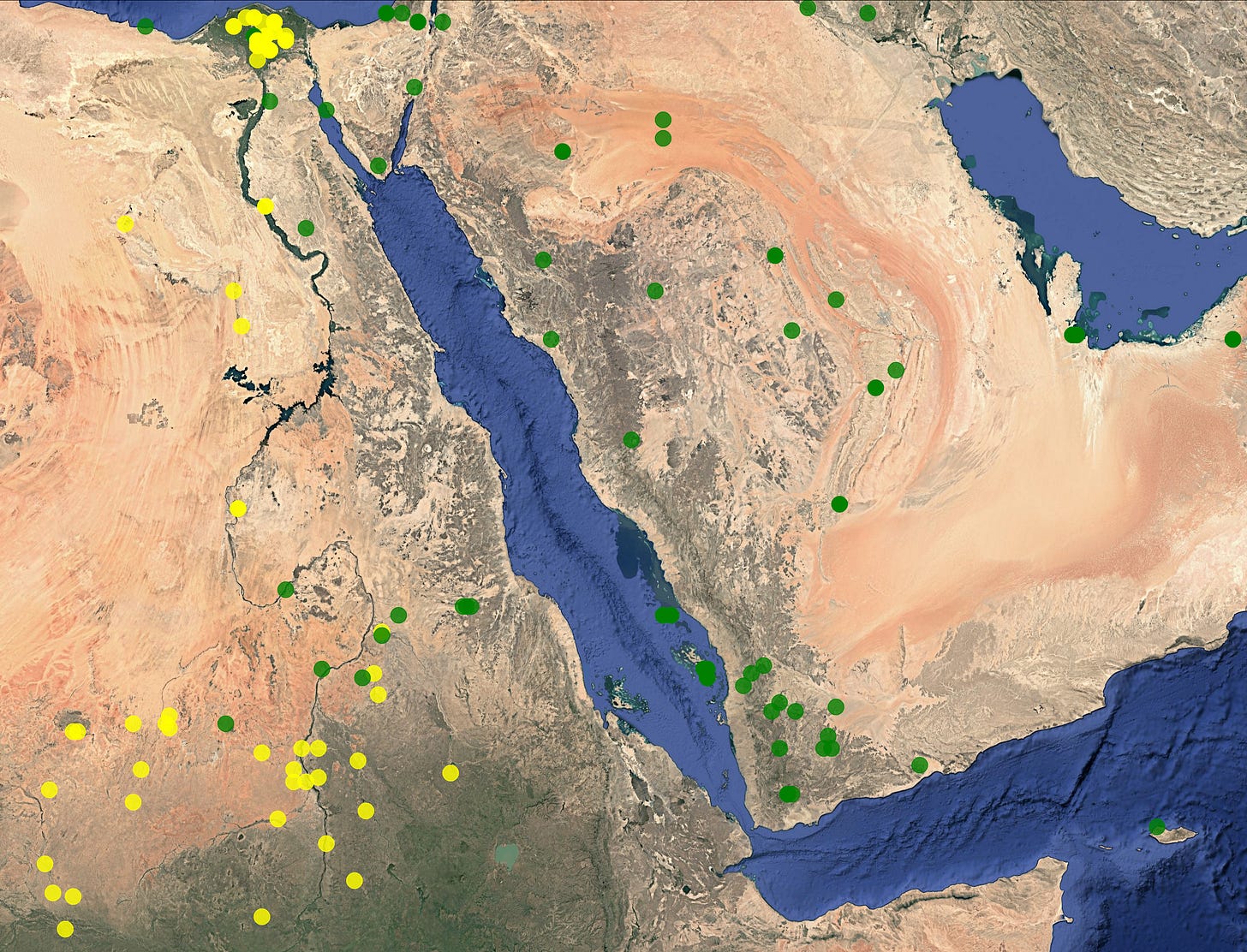Much to the frustration of many an archeologist, the alluvial mud of the Egyptian Delta has yielded little evidence of Israel’s presence there, and seems unlikely to do so any time soon given the Egyptian’s love of papyrus together with the Delta’s moist climatic conditions.
Suppose, then, we turn our gaze elsewhere. Suppose we look not for traces of Israel’s influence in Egypt, but for traces of Egypt’s influence on the pages of Israel’s Scriptures? What do we find?
Well, one thing we find is a noteworthy word—shittah (שִׁטָּה) = ‘acacia tree’.
The word shittah has a highly restricted distribution in the Bible. It occurs a total of 28 times, 26 of which are in the book of Exodus (where they refer to the Tabernacle’s furniture). Outside of that, shittah occurs only once in Deuteronomy (in reference to the ark) and once in Isaiah (in reference to the way God makes a previously barren desert flourish).
The word shittah thus seems to be a region-specific term for the acacia tree, and it turns out to have a good Egyptian cognate in the word ⟨šnd.t⟩ (likely pronounced shandat), which occurs in numerous ancient texts in reference to furniture (etc.). Consequently, and quite reasonably, in his book on non-Semitic Biblical loanwords, Benjamin Noonan takes the Hebrew word shittah to have been borrowed from Egyptian.
Significantly, a similar picture emerges from the distribution of the word shittah in modern-day geographical names. The Arabic form of the word shittah (viz. sant) occurs almost exclusively in and around Egypt, as the yellow dots on the map below illustrate.1
Meanwhile, in the Arabian Peninsula, the more common word for the acacia tree is samar, which occurs most frequently where the word sant doesn’t (see the green dots).
Almost 3,500 years after the exodus, then, today’s geography reflects a similar state of affairs to the Bible.
Also included are occurrences of the diminutive form of sant (سَنْط), viz. sunayt (سُنَيْط).







That's very interesting but I am not sure its considered a legitimate avenue of archeological inquiry. Do you know? I'm also interested in what archeological evidence - or the lack of it - mean.
I wrote about it here, Shavuot and Biblical criticism. https://ishayirashashem.substack.com/p/shavuot-and-biblical-criticism